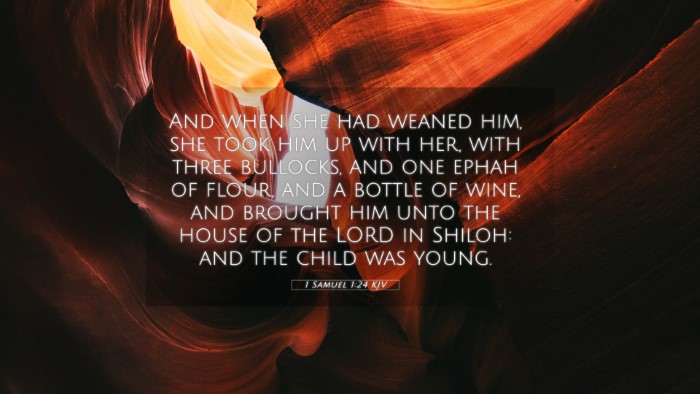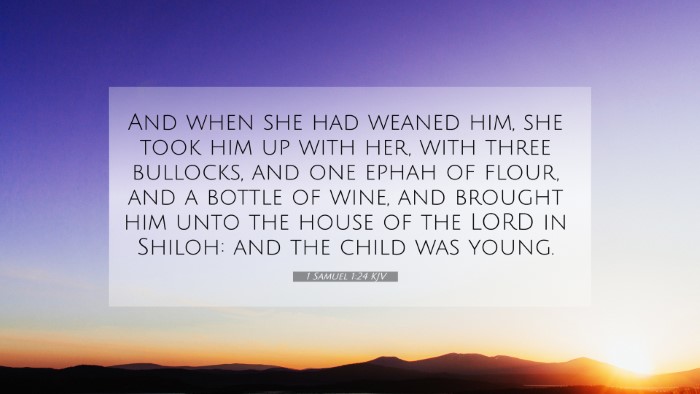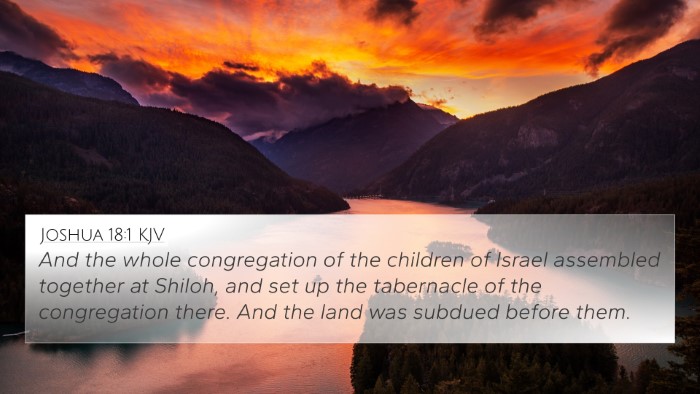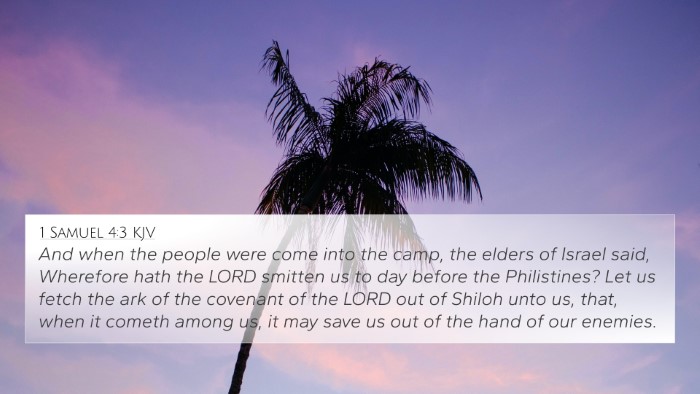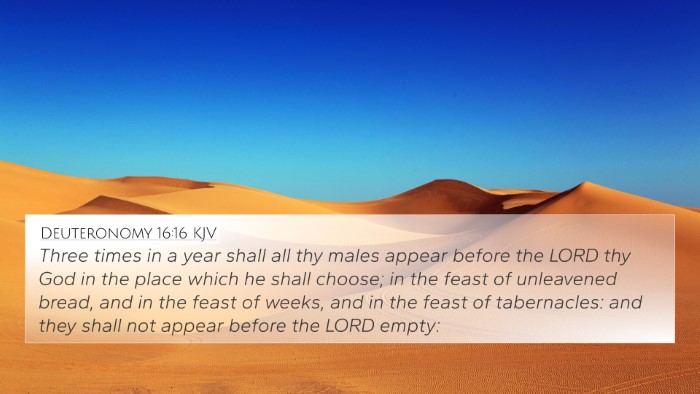Understanding 1 Samuel 1:24
Bible Verse: 1 Samuel 1:24 - "And when she had weaned him, she took him up with her, with three bullocks, and one ephah of flour, and a bottle of wine, and brought him unto the house of the LORD in Shiloh: and the child was young."
Context and Background
This verse occurs in a pivotal moment in the narrative of Hannah, a woman who fervently prayed for a child and promised to dedicate him to the Lord. The birth of Samuel was a significant event in Israel’s history since he would later become a prophet and leader. The actions described in this verse follow her fulfillment of the vow made to God, illustrating a profound act of dedication and sacrifice.
Commentary Insights
Insights from Matthew Henry
Matthew Henry reflects on the devotion Hannah exhibits in both her prayer and her subsequent actions. Her commitment to fulfill her vow emphasizes her faith and gratitude to God for answering her prayers. Henry notes that the presence of offerings such as bullocks and flour signifies the importance of celebrating God’s blessings through acts of worship.
Insights from Albert Barnes
Albert Barnes discusses the cultural and ceremonial implications of Hannah's offerings. He highlights that the three bullocks represent a substantial sacrifice, pointing out the economic significance of such offerings in ancient Israel. This act shows her deep reverence and acknowledgment of God’s role in her life and the life of her child. Barnes indicates that this passage sets the stage for Samuel's future service to God.
Insights from Adam Clarke
Adam Clarke emphasizes the emotional aspect of Hannah's decision as she brings Samuel to the temple. Clarke notes that the phrase "the child was young" suggests the emotional sacrifice of dedicating her only child. He interprets the bottle of wine as a further token of her celebration, demonstrating that emotional moments can accompany significant spiritual decisions.
Thematic Connections and Cross-References
This passage can be connected to several other scriptures that explore themes of prayer, dedication, and the significance of God’s provisions:
- 1 Samuel 1:11: Hannah’s vow to Jehovah, where she promises to dedicate her son to God if He grants her a child.
- Exodus 13:12: The command to dedicate firstborn sons to the Lord, linking to the broader theme of dedication in the Bible.
- Luke 2:22: The presentation of Jesus at the temple, showcasing how sacred ceremonies of dedication continue through generations.
- Hebrews 11:11: The faith of Sarah and how God rewards faithfulness, resonating with Hannah’s unwavering trust in God's plan.
- Judges 13:7: The story of Manoah and his wife, where an angel of God speaks of dedicating their son, Samson, to God.
- Psalm 127:3: Children as a heritage from the Lord, highlighting the blessings of motherhood that Hannah experienced.
- 1 Chronicles 1:28-29: Lists of the descendants of Aaron, illustrating the importance of lineage and dedication to God’s service.
Conclusion
The verse 1 Samuel 1:24 serves as a rich resource for understanding the depth of Hannah's faith and the importance of dedicating one's life (and the lives of one's children) to God. The act of dedicating Samuel is a profound statement about trust, gratitude, and the importance of keeping vows made to God. Through cross-referencing various Bible verses, we see the thematic connections of dedication and service that weave through the scripture, illuminating how God calls individuals to fulfill their destinies in faith.
Exploring Bible Cross-References
For those interested in understanding how different scriptures relate to one another, tools for Bible cross-referencing can enhance study and comprehension:
- Bible concordance: A helpful resource for locating specific verses and their connections.
- Cross-reference Bible study: Engaging with multiple scriptures to enrich understanding of themes and narratives.
- How to use Bible cross-references: Methods of identifying thematic links between verses for deeper insights.
Further Study
The journey through scripture unveils the interconnectedness of biblical texts. Each verse has its unique context but often resonates with deep themes found elsewhere, inviting profound reflections on God's work in the lives of believers. Cross-referencing Bible verses enriches not only individual study but also collective experiences in learning about one’s faith.

